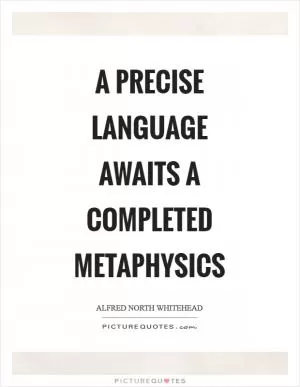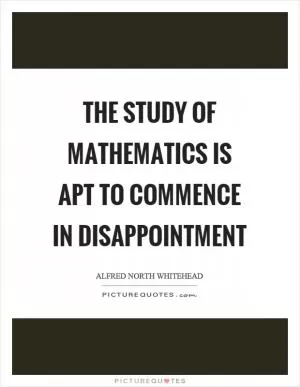It takes an extraordinary intelligence to contemplate the obvious

It takes an extraordinary intelligence to contemplate the obvious
Alfred North Whitehead, a renowned mathematician and philosopher, once famously said, "It takes an extraordinary intelligence to contemplate the obvious." This statement may seem paradoxical at first glance, as one might assume that intelligence is required to understand complex and abstract concepts rather than the obvious. However, Whitehead's words hold a deeper meaning that speaks to the importance of critical thinking and intellectual curiosity.In the context of Whitehead's philosophy, contemplating the obvious does not refer to simply acknowledging surface-level truths or accepting things at face value. Instead, it involves delving deeper into seemingly mundane or commonplace ideas to uncover hidden complexities and connections. It requires the ability to question assumptions, challenge conventional wisdom, and explore the underlying principles that govern our understanding of the world.
Whitehead believed that true intelligence lies in the ability to see beyond the obvious and recognize the deeper patterns and relationships that shape our reality. This kind of intellectual curiosity and open-mindedness is essential for making new discoveries, solving complex problems, and pushing the boundaries of human knowledge.
For Whitehead, the pursuit of knowledge was a never-ending journey that required constant questioning and reevaluation of our beliefs and assumptions. He believed that true wisdom comes from being willing to challenge our preconceived notions and embrace uncertainty in order to gain a deeper understanding of the world around us.
In today's fast-paced and information-saturated world, it can be easy to overlook the obvious in favor of more flashy or sensationalized ideas. However, Whitehead's words serve as a reminder that true intelligence requires us to slow down, think critically, and engage with the world in a more thoughtful and deliberate way.












 Friendship Quotes
Friendship Quotes Love Quotes
Love Quotes Life Quotes
Life Quotes Funny Quotes
Funny Quotes Motivational Quotes
Motivational Quotes Inspirational Quotes
Inspirational Quotes